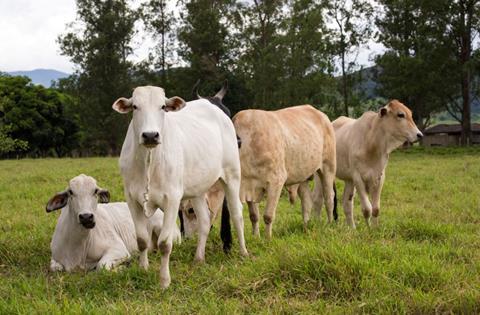SPECIAL FEATURE – Beef supply chain:
A new development will allow suppliers of global meat processor, JBS, to register their own suppliers to enable compliance with the socioenvironmental criteria for breeding beef cattle in the Amazon Biome.

This month, registration began of producers on the Transparent Livestock Farming Platform, a tool which, using blockchain technology,making it possible to extend environmental monitoring with secure, reliable data for its cattle suppliers, and in turn, their suppliers.
Signing up will be voluntary. Beef cattle producers who directly supply JBS, the food company sponsoring the initiative, will list their suppliers of animals on the platform developed by specialized company Ecotrace. As the platform is an open one, other companies within the industry can use the system.
The data will be sent electronically for validation by Agri Trace Rastreabilidade Animal, the system of the CNA (Brazilian Confederation of Agricultura and Livestock Farming). Once authorized by the producer, the CNA checks if the list of suppliers is complete.
Compliance
The outcome of the analysis will be sent directly to the JBS supplier who, for the first time, will be able to view socioenvironmental compliance throughout his entire supply chain. This means they will be able to develop plans to mitigate risks and engage in actions that help producers.
JBS will not have access to sensitive information, only to the consolidated analysis of its suppliers. The blockchain technology means it’s possible to maintain the commitment to the confidentiality of third-party information.
A fundamental part of the project is a supply chain engagement strategy to accelerate compliance with environmental standards. It is hoped that beef cattle suppliers of JBS will sign up to the programme by the end of 2025.
This is also the deadline, according to the Net Zero 2040 commitment announced by JBS, for the company’s beef cattle supply chain, including its suppliers’ suppliers, to be free of illegal deforestation in the Amazon Biome and the other biomes in Brazil by 2030. T
The world’s second-largest food company and global leader in protein has made a commitment to zero the balance of its greenhouse gas emissions across its entire, diversified value chain, reducing the intensity of direct and indirect emissions and offsetting all residual emissions.
The Net Zero target of JBS includes the company’s global transactions, covering farm, farmers and other suppliers, in addition to clients, in its efforts to achieve net zero emissions in 2040.
The company hopes that by the end of the year the Transparent Livestock Farming Platform will have registered producers who have a total turnover of 1 million animals.
It is the world’s largest programme of its kind. The data the system gathers are independently audited. The most recent audit confirmed that 100% of the company’s direct purchases of beef cattle were compliant with its strict policies on the acquisition of raw materials.
Márcio Nappo, the company’s sustainability director said: “JBS is contributing with a robust solution based on a continuous improvement approach.”
This story was originally published on a previous version of the Meat Management website and so there may be some missing images and formatting issues.












